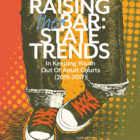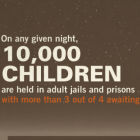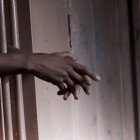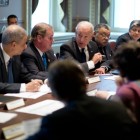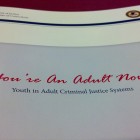
LAS VEGAS -- When the National Partnership for Juvenile Services annual symposium opened, Jason Bowser, a youth service director from Columbus, Ind., told an executive committee that one of the standing committees was focusing on the question of “What is a juvenile?”
It might seem an odd question for a gathering of folks who specialize in working with youth in the juvenile justice system, but really the question, even when not spoken, would be present in training sessions across the three-day symposium held here this week. Nor is it just a hypothetical question because nearly 250,000 young people under the age of 18 end up in the adult criminal justice system every year, according to the National Institute of Corrections report, “You’re an Adult Now: Youth in Adult Criminal Justice Systems.”
Liz Ryan, president and CEO of the Campaign for Youth Justice -- in a session reflecting the “Adult Now” theme -- reminded everyone that New York and North Carolina still consider juveniles to be adults at the ages of 16 or 17 in criminal proceedings, whereas in the rest of the states it’s 18. Ryan said a new report shows that each year 100,000 young people get sent to an adult facility and on any given day approximately 10,000 of them are in an adult facility. Once there, the correction system managers do have rules that treat the juvenile differently from the mainstream adult population. At times that means putting the kids into isolation.
